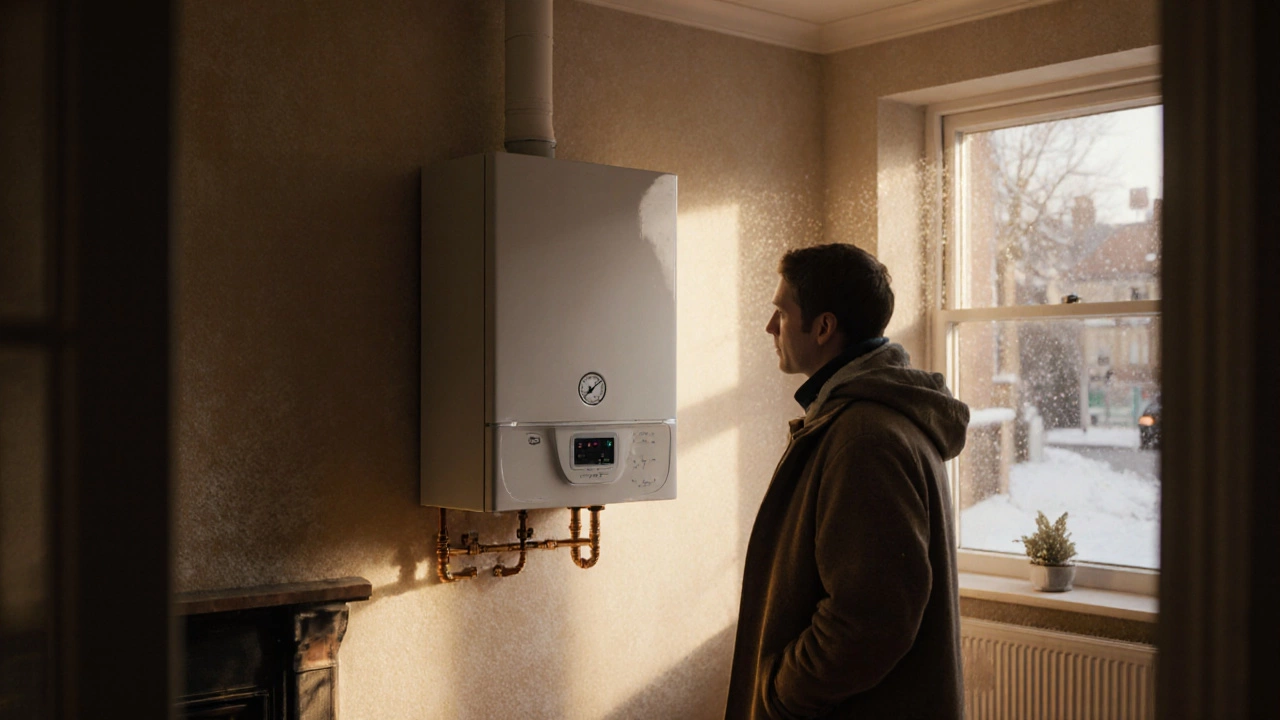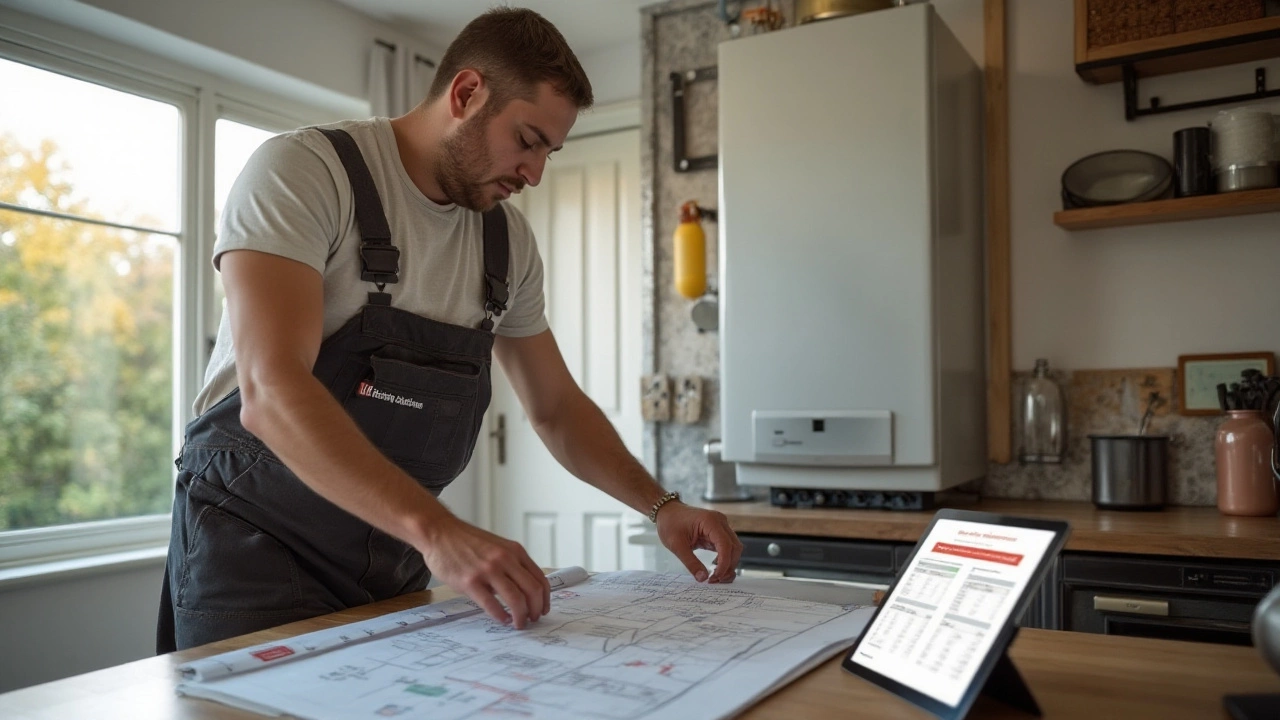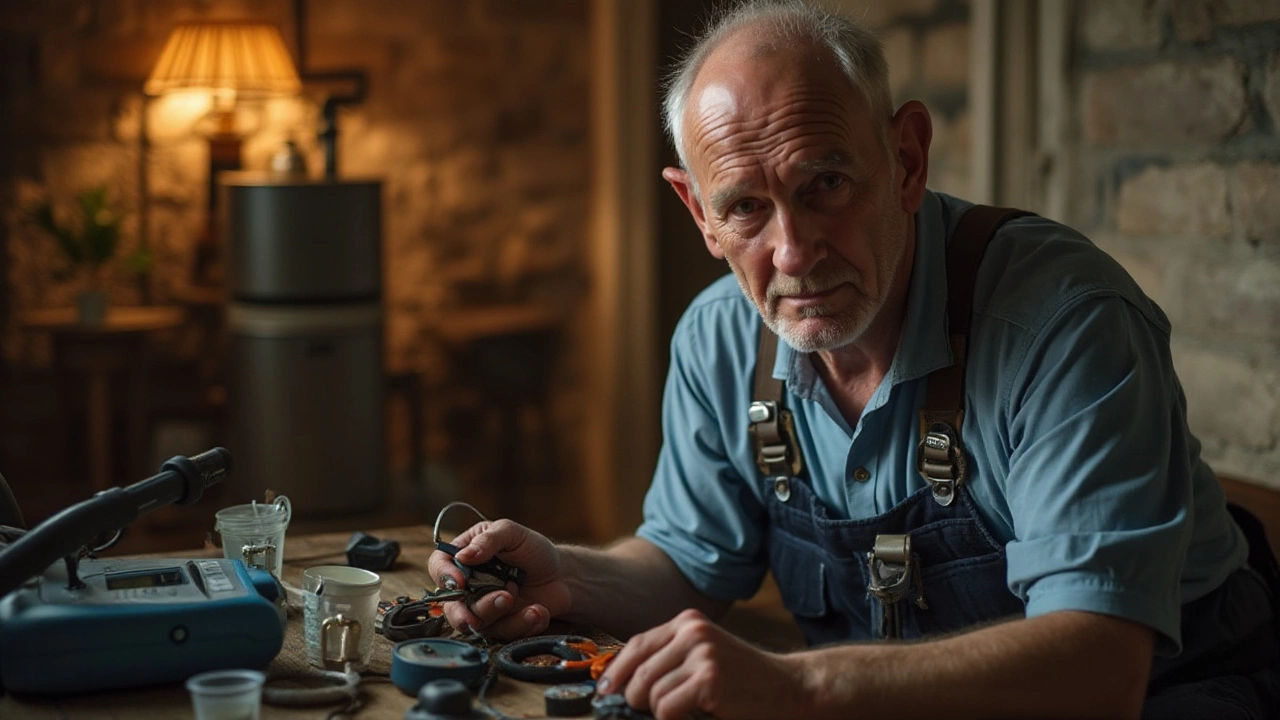Find out if you can safely service your boiler yourself, learn which DIY tasks are safe, and know when to call a certified Gas Safe Engineer for legal and warranty reasons.
Home Heating Advice for Nuneaton Homes
Feeling the chill around the house? A well‑kept heating system can make all the difference. Below you’ll find easy steps to keep your boiler, water heater and heat pump humming, plus signs that it’s time to call an expert.
Keeping Your Boiler in Shape
First thing’s first – check the pressure gauge every month. If the needle sits below 1 bar, top it up using the filling loop; most boilers have a clear diagram on the pipe. While you’re at it, bleed any noisy radiators. A quick twist of the bleed valve releases trapped air, improves heat distribution and cuts the whistling sound.
Next, schedule a professional service at least once a year. A qualified engineer will clean the heat exchanger, test the safety valve and make sure the burner is firing correctly. Skipping this step can lead to carbon monoxide leaks or costly breakdowns later.
Feel a sudden drop in water temperature? It could be a failing thermostat or a blocked pump. Resetting the boiler (usually a simple button press) often helps, but if the problem persists, it’s best to arrange a repair. Ignoring it may waste energy and raise your bills.
Smart Choices for Water Heaters and Heat Pumps
Water heaters need less fuss than boilers but still deserve attention. Flushing the tank every 12‑18 months removes sediment that reduces efficiency. To do this, turn off the power, connect a garden hose to the drain valve, and let the water run until clear.
If you own a heat pump, keep the outdoor unit clear of debris. Leaves, dust and snow can block airflow, forcing the system to work harder. A quick sweep with a soft brush once a month keeps performance up and noise down.
Watch for warning signs: odd noises, inconsistent water temperature, or a spike in electricity use. These clues often mean a part is wearing out. Replacing a failing anode rod in a water heater, for example, can extend its life by years.
When in doubt, call a licensed technician. Trying to tinker with gas lines or electrical connections without proper training is risky. A qualified pro can diagnose the issue safely, give you a clear cost estimate, and get the job done fast.
Finally, think about upgrading. Modern condensing boilers and efficient heat pumps can cut heating bills by up to 30 %. If your system is over 15 years old, ask for a free energy assessment – many installers offer it at no charge.
Keeping your home warm doesn’t have to be a hassle. Regular checks, annual servicing, and knowing when to call in the experts will save you time, money, and a lot of cold evenings. Stay cozy, Nuneaton!
Replacing a boiler can be a hefty expense, and many homeowners wonder why the cost is so high. This article explores the factors that contribute to the price of boiler replacement, including the technical intricacies of installation, the type of boiler being installed, and the overall economic impact. We will delve into the various costs associated with labor, materials, and regulations, providing readers with a comprehensive understanding of what affects boiler replacement pricing. Also, you'll receive practical tips to help navigate this significant investment in home heating.
Deciding whether to repair a 20-year-old boiler can be challenging. This decision involves weighing the costs against the potential benefits, considering energy efficiency, the risk of failure, and safety issues. These points are crucial for making the most informed and practical choice for your home heating system.
Deciding whether to repair or replace your boiler can be a daunting task. This article explores key considerations such as the age and efficiency of your current boiler, cost of repairs versus replacement, and the potential benefits of modern models. It offers practical tips to weigh up the pros and cons before making a decision. Additionally, it provides useful insights into maintaining boiler longevity to avoid frequent repairs.




